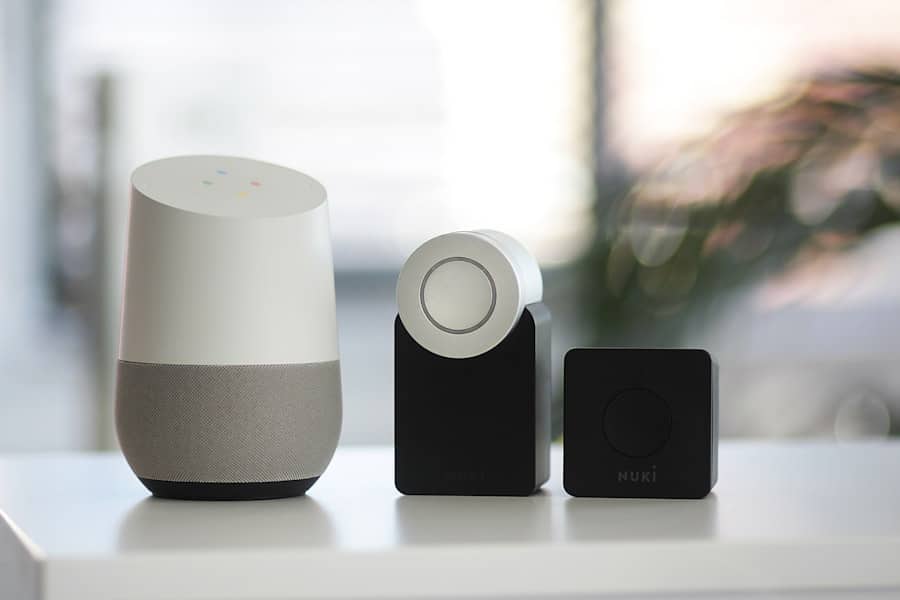In an era where technology permeates every aspect of daily life, the emergence of artificial intelligence (AI) assistants has transformed how individuals interact with their devices. These AI systems, designed to facilitate tasks ranging from scheduling appointments to managing smart home devices, have become ubiquitous. However, as their capabilities expand, so too do concerns regarding user privacy.
Privacy-centric AI assistants are designed with a primary focus on safeguarding user data while still delivering the convenience and efficiency that users expect. This shift towards privacy-centricity is not merely a response to consumer demand; it reflects a growing recognition of the ethical implications of data collection and usage in the digital age. The concept of privacy-centric AI assistants encompasses a range of technologies and methodologies aimed at minimizing data exposure and enhancing user control over personal information.
Unlike traditional AI assistants that often rely on extensive data collection to function effectively, privacy-centric alternatives prioritize user anonymity and data protection. This approach is particularly relevant in light of recent high-profile data breaches and increasing public awareness of surveillance practices. As users become more informed about their digital footprints, the demand for AI solutions that respect privacy rights is likely to grow, prompting developers to innovate in ways that align with these values.
Key Takeaways
- Privacy-centric AI assistants prioritize the protection of user data and privacy in their design and functionality.
- Current challenges in privacy and AI assistants include the potential for data breaches, unauthorized access to personal information, and lack of transparency in data usage.
- Advancements in privacy-centric AI technology include the development of encryption techniques, differential privacy, and decentralized data storage.
- Privacy-centric AI assistants have a positive impact on data security by implementing robust encryption, secure data storage, and user consent mechanisms.
- Ethical considerations in the development of privacy-centric AI assistants involve ensuring transparency, fairness, and accountability in data usage and decision-making processes.
Current Challenges in Privacy and AI Assistants
Despite the advancements in technology, significant challenges persist in the realm of privacy and AI assistants. One of the most pressing issues is the inherent tension between functionality and privacy. Traditional AI assistants often require access to vast amounts of personal data to provide personalized experiences.
This data can include everything from location information to communication history, raising concerns about how this information is stored, processed, and potentially exploited. Users frequently find themselves in a dilemma: they must choose between enjoying the benefits of a highly personalized service and safeguarding their private information. Moreover, the lack of transparency in data handling practices exacerbates these challenges.
Many users are unaware of how their data is collected, used, or shared with third parties. This opacity can lead to a sense of mistrust towards AI technologies, as individuals question whether their information is being adequately protected or if it is being sold to advertisers without their consent. The complexity of data privacy laws across different jurisdictions further complicates matters, as companies may struggle to comply with varying regulations while still delivering effective AI services.
Advancements in Privacy-Centric AI Technology

In response to these challenges, significant advancements have been made in the development of privacy-centric AI technologies. One notable innovation is the implementation of federated learning, a machine learning technique that allows AI models to be trained across decentralized devices without the need to share raw data. Instead of sending personal information to a central server for processing, federated learning enables the model to learn from data stored locally on users’ devices.
This approach not only enhances privacy but also reduces the risk of data breaches since sensitive information never leaves the user’s device. Another promising advancement is the use of differential privacy techniques, which add noise to datasets to obscure individual user information while still allowing for meaningful insights to be derived from aggregated data. By employing these techniques, developers can create AI assistants that provide personalized recommendations without compromising user privacy.
For instance, a privacy-centric AI assistant could suggest restaurants based on a user’s preferences without needing access to their entire location history. These advancements represent a paradigm shift in how AI technologies can be designed and deployed, prioritizing user privacy without sacrificing functionality.
The Impact of Privacy-Centric AI Assistants on Data Security
The introduction of privacy-centric AI assistants has profound implications for data security. By minimizing the amount of personal information collected and processed, these systems inherently reduce the attack surface for potential cyber threats. With less sensitive data stored on centralized servers, the risk of large-scale data breaches diminishes significantly.
This shift not only protects individual users but also enhances overall trust in digital ecosystems, encouraging more people to engage with technology without fear of compromising their privacy. Furthermore, privacy-centric AI assistants often incorporate advanced encryption methods and secure communication protocols to safeguard user interactions. For example, end-to-end encryption ensures that only the intended recipient can access messages or data shared through the assistant, preventing unauthorized access during transmission.
This level of security is crucial in an age where cyberattacks are increasingly sophisticated and prevalent. By prioritizing robust security measures alongside privacy considerations, developers can create AI assistants that not only respect user autonomy but also actively protect against emerging threats.
Ethical Considerations in the Development of Privacy-Centric AI Assistants
The development of privacy-centric AI assistants raises important ethical considerations that must be addressed by developers and stakeholders alike. One key issue is the responsibility of companies to ensure that their technologies do not inadvertently perpetuate biases or discrimination. As AI systems learn from historical data, there is a risk that they may reinforce existing societal inequalities if not carefully monitored and managed.
Developers must prioritize fairness and inclusivity in their algorithms, ensuring that privacy measures do not come at the expense of equitable treatment for all users. Additionally, there is an ethical imperative to empower users with control over their own data. Privacy-centric AI assistants should not only minimize data collection but also provide users with clear options for managing their information.
This includes allowing users to easily access, modify, or delete their data as they see fit. Transparency in how data is used and shared is essential for fostering trust between users and technology providers. By prioritizing ethical considerations in the design and deployment of these systems, developers can create AI assistants that align with societal values and promote responsible technology use.
The Role of Regulation in Protecting Privacy with AI Assistants

Regulation plays a crucial role in shaping the landscape of privacy-centric AI assistants. Governments and regulatory bodies around the world are increasingly recognizing the need for comprehensive frameworks that protect user privacy while fostering innovation in technology. The General Data Protection Regulation (GDPR) in Europe serves as a prominent example of such legislation, establishing strict guidelines for data collection, processing, and storage.
Similar regulations are emerging globally, reflecting a growing consensus on the importance of safeguarding personal information in an increasingly digital world. However, regulation must strike a delicate balance between protecting user privacy and allowing for technological advancement. Overly stringent regulations could stifle innovation and hinder the development of new solutions that enhance user experiences.
Therefore, it is essential for policymakers to engage with industry stakeholders when crafting regulations that govern AI technologies. Collaborative efforts can lead to frameworks that not only protect individual rights but also encourage responsible innovation within the tech sector.
The Future Integration of Privacy-Centric AI Assistants in Everyday Life
As society becomes more attuned to issues surrounding privacy and data security, the integration of privacy-centric AI assistants into everyday life is likely to accelerate. These technologies have the potential to revolutionize how individuals interact with their devices while maintaining control over their personal information. For instance, imagine a future where smart home devices operate seamlessly through an AI assistant that prioritizes user privacy by processing commands locally rather than relying on cloud-based services.
Moreover, as businesses increasingly adopt privacy-centric practices, consumers may begin to favor products and services that prioritize data protection. This shift could lead to a competitive landscape where companies differentiate themselves based on their commitment to user privacy. In this context, privacy-centric AI assistants could become not just tools for convenience but also symbols of trustworthiness in an era marked by growing skepticism towards technology providers.
The Potential Benefits and Risks of Privacy-Centric AI Assistants
The rise of privacy-centric AI assistants presents both significant benefits and potential risks that must be carefully navigated as technology continues to evolve.
On the other hand, there remains a risk that even well-intentioned technologies could inadvertently compromise user privacy if not developed with rigorous ethical standards and oversight.
As we move forward into an increasingly interconnected world, it will be essential for developers, regulators, and consumers alike to engage in ongoing dialogue about the implications of privacy-centric AI assistants. By prioritizing transparency, ethical considerations, and robust regulatory frameworks, we can harness the potential of these technologies while safeguarding individual rights in an ever-changing digital landscape.
If you are interested in the latest technology trends, you may also want to check out this article on the best smartwatch apps of 2023. It provides insights into the most innovative apps that are transforming the way we use smartwatches. As we continue to rely on AI assistants for various tasks, having access to cutting-edge apps can enhance our overall user experience.
FAQs
What are privacy-centric AI assistants?
Privacy-centric AI assistants are artificial intelligence-powered virtual assistants that prioritize the privacy and security of user data. These assistants are designed to limit data collection, use encryption, and provide users with control over their personal information.
How do privacy-centric AI assistants differ from traditional AI assistants?
Privacy-centric AI assistants differ from traditional AI assistants in that they are specifically designed to minimize data collection and prioritize user privacy. They often use techniques such as on-device processing, end-to-end encryption, and anonymization of data to protect user privacy.
What are the benefits of privacy-centric AI assistants?
The benefits of privacy-centric AI assistants include enhanced user privacy and security, reduced risk of data breaches and unauthorized access, and increased user trust and confidence in the technology. These assistants also provide users with greater control over their personal data.
What are some examples of privacy-centric AI assistants?
Examples of privacy-centric AI assistants include Apple’s Siri, which uses on-device processing and anonymized data, and Mycroft, an open-source AI assistant that allows users to control their data and privacy settings. Other examples include Snips, Almond, and Rhasspy.
What is the future of privacy-centric AI assistants?
The future of privacy-centric AI assistants is likely to involve continued advancements in privacy-preserving technologies, increased user awareness and demand for privacy-centric features, and the integration of privacy-centric principles into mainstream AI assistant platforms. As privacy concerns continue to grow, the development and adoption of privacy-centric AI assistants are expected to increase.

